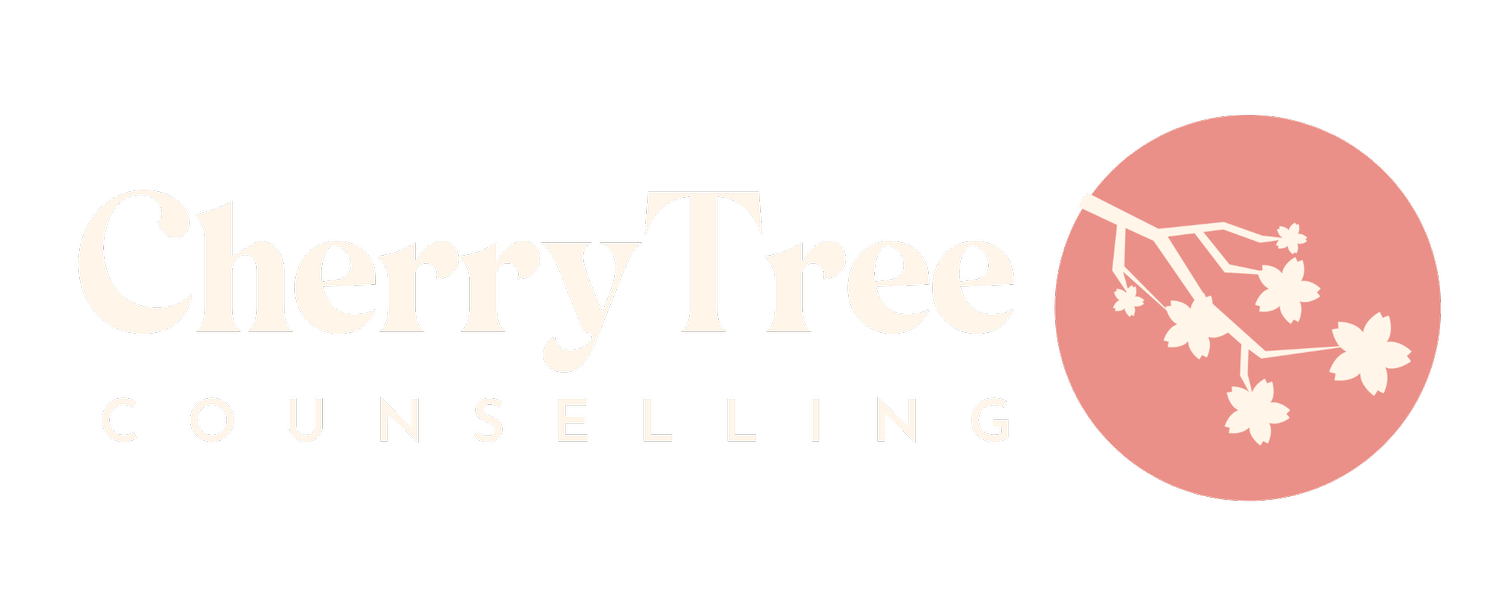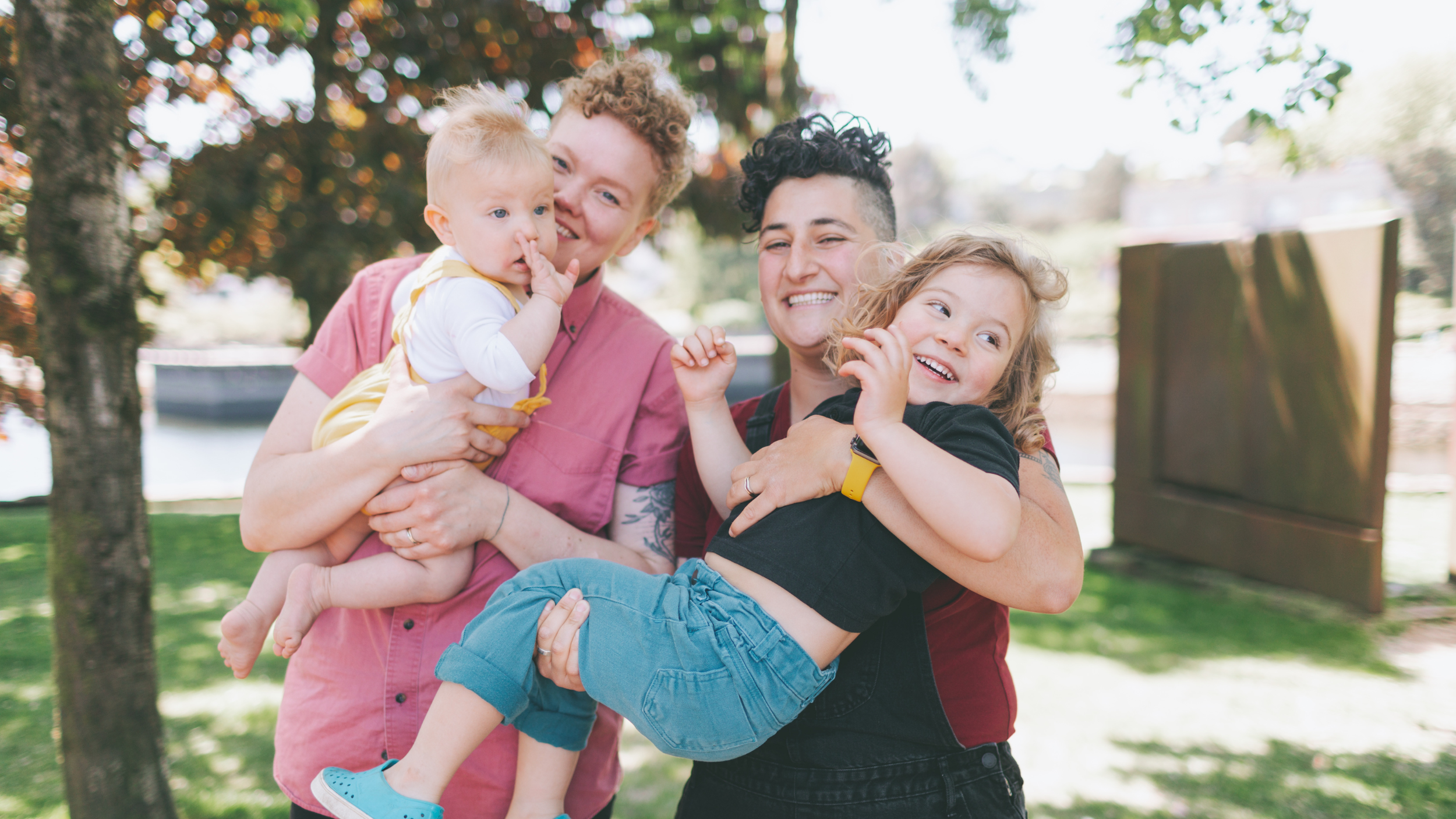Beyond the Binary
Fertility Challenges and Triumphs in the LGBTQ+ Community
At Cherry Tree Counselling, we recognize that the journey to parenthood is deeply personal and often complex, especially for members of the 2SLGBTQ+ community. While societal acceptance has grown, many individuals still face unique barriers when navigating fertility and reproductive health services. This article aims to shed light on these challenges and celebrate the resilience and triumphs within the community.
Understanding the Unique Challenges
For many 2SLGBTQ+ individuals and couples, the path to parenthood involves navigating a healthcare system that has historically been designed with heteronormative assumptions. Research indicates that while Canadian fertility clinics have become more inclusive, significant gaps remain. A study found that only 21% of clinics had written policies specifically addressing care for lesbian patients, and many lacked inclusive language on their websites.
Accessing fertility services can be logistically and emotionally complicated. Many queer and trans individuals report feeling dismissed, misunderstood, or even discriminated against in medical settings. Intake forms that assume heterosexuality, a lack of provider training in gender diversity, and systemic barriers such as cost and geography all contribute to a landscape that can feel overwhelming or inaccessible.
For transgender and non-binary individuals, these challenges are even more pronounced. Fertility preservation can be medically and emotionally complex, especially when undergoing gender-affirming treatments. In one Ontario-based study, 86.7% of trans men expressed concern about whether they would be able to access healthcare to have biological children. Additionally, navigating fertility services often brings up identity-related distress, especially when practitioners lack the knowledge or sensitivity to provide affirming care.
Legal and social barriers also play a role. Some provinces in Canada still have inconsistencies in access to fertility funding, parental recognition for non-biological parents, and adoption rights, which can place an additional emotional and financial burden on 2SLGBTQ+ families.
Triumphs and Resilience
Despite the systemic challenges, the 2SLGBTQ+ community continues to demonstrate deep resilience, creativity, and strength in building families. Many individuals and couples pursue parenthood through assisted reproductive technologies (ART) such as intrauterine insemination (IUI), in vitro fertilization (IVF), and reciprocal IVF. Others choose surrogacy, co-parenting arrangements, or adoption. Each of these paths comes with its own set of decisions, emotions, and victories.
Community support and advocacy have led to tangible progress. Legal changes in many provinces have helped recognize diverse family structures, while increased visibility of queer and trans parents in media and public discourse has helped reduce stigma and promote acceptance. Organizations like the Canadian Fertility & Andrology Society now have special interest groups focused on improving inclusive practices and education for providers.
Equally important are the emotional triumphs—the quiet and powerful moments of becoming. The first time a non-gestational parent is recognized, the shared joy of a positive pregnancy test, the comfort of finding a care provider who truly sees you. These experiences matter. They are a testament to the community’s resilience and the importance of affirming, trauma-informed care.
The concept of “chosen family” is also central in many 2SLGBTQ+ parenting stories. Support systems often extend beyond traditional biological or legal ties to include a network of friends, donors, surrogates, and co-parents. This expansive, community-rooted definition of family offers a deeply meaningful model of care and connection.
Moving Forward Together
While systemic barriers persist, the strength and resilience of the 2SLGBTQ+ community continue to drive progress. By sharing stories, advocating for inclusive practices, and supporting one another, we can create a more equitable and affirming environment for all individuals seeking to build their families.
Affirming Support at Cherry Tree Counselling
At Cherry Tree, we are committed to providing affirming, inclusive, and compassionate care for all individuals on their fertility and family-building journeys. Kate McDermott, one of our experienced clinicians, specializes in 2SLGBTQ+ affirming care, offering support tailored to the unique experiences and needs of the community. Kate provides a safe space to explore emotions, navigate challenges, and celebrate the joys of building a family.
We offer a community of care.
Whether you're facing a current challenge, a past pain, or are simply feeling stuck in this phase of your life, we can help you to live the life you want with intention, mindfulness and balance.
We offer free 15 minute consultations.
Connect with us and let’s talk about how we can help you.
SOURCES:
Ross LE, Steele LS, Epstein R. Access to fertility services for lesbian women in Canada. Fertil Steril. 2013;100(4):1077-1084.
Patterson K, et al. Exploring parenthood intentions and perceptions of infertility and assisted reproductive technology among 2SLGBTQIA+ young adults in Ontario, Canada: a mixed methods study. J Health Popul Nutr. 2025;43(1):7.
Canadian Fertility & Andrology Society. 2SLGBTQ+ Special Interest Group. https://cfas.ca/cgi/page.cgi/2SLGBTQ_SIG.html
Brotto LA, et al. Sexual and gender minority peoples' recommendations for assisted human reproduction services. J Obstet Gynaecol Can. 2015;37(9):830-837.
Riggs DW, Bartholomaeus C. Experiences of gestational surrogacy for gay men in Canada. Reprod Biomed Online. 2020;41(3):385-392.
Brotto LA, et al. Cultural competence in fertility care for lesbian, gay, bisexual, transgender, and queer people: a systematic review of patient and provider perspectives. Fertil Steril. 2021;115(4):1041-1050.
Note: This article is intended for informational purposes and does not substitute professional medical advice.



